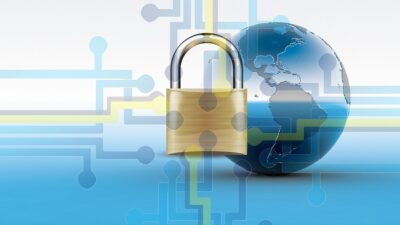The advent of Web3 represents a paradigm shift in how we interact, transact, and govern digital spaces. As we progressively move away from centralized control towards decentralization, Decentralized Autonomous Organizations (DAOs) have emerged as a revolutionary concept reshaping governance and decision-making processes.
Understanding Web3
Web3 refers to the third generation of the internet, which emphasizes decentralization, transparency, and user empowerment. Unlike its predecessors, Web3 leverages blockchain technology to distribute power away from centralized entities, allowing individuals to own their data and participate in governance.
In Web3, the traditional roles of users and platforms are transformed. Users become stakeholders, actively participating in the development and direction of projects they are invested in. This shift paves the way for new governance models, with DAOs at the forefront.
What are DAOs?
DAOs are organizations governed by smart contracts on a blockchain. They operate autonomously, with rules encoded in the smart contracts, and rely on a consensus-driven model for decision-making. The members of a DAO hold governance tokens, which give them voting power on proposals affecting the organization.
The key characteristics of DAOs include:
- Decentralization: No single entity controls the DAO; decisions are made collectively by members.
- Transparency: All actions and decisions are recorded on the blockchain, accessible to all stakeholders.
- Token-based Voting: Members vote on proposals using tokens representing their stake, ensuring that those who are most invested have a greater say.
- Autonomy: DAOs function independently once launched, following pre-defined rules without needing human intervention for everyday operations.
DAOs and Governance Models
DAOs present a compelling alternative to traditional governance structures in several ways:
-
Collective Decision-Making: DAOs empower all stakeholders to participate in decision-making, promoting inclusivity. This stands in stark contrast to top-down management models where only a few make key decisions.
-
Reduced Corruption: The transparent nature of DAOs minimizes the risk of corruption and fraud. Every transaction and decision is recorded on a public ledger, ensuring accountability.
-
Speed and Efficiency: DAOs can operate more quickly than traditional organizations. Automated processes and smart contracts reduce the time needed for decision-making and implementation.
- Innovation through Incentives: DAOs can align incentives between stakeholders, driving innovation. Members can propose projects or initiatives that benefit the community, with funding allocated based on the community’s collective agreement.
Challenges Facing DAOs
While DAOs present unprecedented opportunities, they also face significant challenges:
-
Technical Complexity: Many potential participants may lack the technical knowledge to engage with DAOs effectively. Simple interfaces and educational resources are crucial for broader participation.
-
Legal and Regulatory Issues: The legal status of DAOs remains cloudy in many jurisdictions. Regulatory bodies are still catching up to this innovation, leading to uncertainty regarding liability, compliance, and taxation.
-
Scalability: As DAOs grow, maintaining a truly decentralized and efficient decision-making process can become increasingly complex. Striking the right balance between inclusivity and efficiency is essential.
- Security Risks: Smart contracts can be vulnerable to hacks and exploits. Once deployed, vulnerabilities can be exploited if not adequately addressed prior to launch, leading to significant financial losses.
The Future of DAOs in Governance
Despite the challenges, DAOs represent the future of governance in the digital age. As Web3 continues to evolve, the adoption of DAOs is expected to expand across various sectors, from finance (DeFi) to nonprofit organizations, social networks, and more.
In the corporate world, traditional organizations are beginning to adopt DAO principles, leading to hybrid models where stakeholders have a voice in strategic decisions. This trend points toward a future where corporate governance blends decentralized autonomy with traditional structures, ensuring that stakeholders remain invested in the success of the organization.
Conclusion
As we shift toward a more decentralized internet, DAOs hold the potential to reshape governance and decision-making in profound ways. By promoting transparency, inclusivity, and collective responsibility, they empower individuals to take part in shaping the projects and communities they care about. While significant challenges remain, the promise of DAOs as a viable governance model is an exciting frontier in the evolution of digital interaction. Embracing this change could redefine not just how organizations operate but how we conceptualize and implement governance itself in the years to come.


